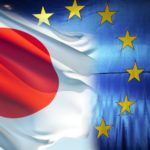Geert Bourgeois, the MEP in charge of steering the agreements through Parliament, explains the economic, social and environmental benefits.
Overview of what changes the EU-Vietnam trade deal would bring about
The aim is to eliminate 99% of tariffs within seven years. This should result in €15 billion a year in additional exports from Vietnam to the EU by 2035, while EU exports to Vietnam would expand by €8.3 billion annually. Of course, every €1 billion of EU exports results in around 14,000 new, well-paid jobs here in the EU. The agreement is also totally in line with our ambition of the EU as a global player.
Current economic relations with Vietnam
There is trade and investment but not enough. It’s a vibrant market with a young population. With economic growth of 6-7% every year, Vietnam is very interesting for European investors.
In 2018, the country exported goods worth about €42.5 billion to the EU. In the other direction, we exported around €13.8 billion worth of goods. With this rules-based, free-trade agreement, there will be an increase in exports both ways.
Geopolitical importance
China is a neighbour of Vietnam. There are also close relations with the US. It is very important that we strengthen our ties with the country. We’ve been negotiating for eight years and it’s important that we come to an agreement now. If not, I’m sure Sino-Vietnamese relations will become more important.
Additionally, as the first trade deal of the new European Parliament, we must show we want to set standards worldwide, all while creating prosperity and new jobs.
Investment protection agreement with Vietnam
The agreement aims to ensure predictability and rule-of-law for investors. In case of litigation, there will be a framework. Vietnam has accepted a modern [investment court system], similar to the one the EU agreed with Canada, with independent judges, a code of conduct and easy access for SMEs. This creates stability and trust for our small businesses.
The environment and labour standards
I am well aware of the concerns, but trade agreements like this are a lever to improve standards outside the EU. On labour conditions, Vietnam is obliged to implement all the ILO conventions, and integrate them into its labour code. Moreover, until now, there has been no freedom of association for unions, but Vietnam has adapted its penal code.
On the environment, Vietnam is bound to the Paris agreement. The EU is working towards carbon neutrality and we must create a level playing field with other countries. If we are doing our best, we should expect the same of others, so the trade deal has a climate aspect.
Human rights issues in Vietnam
We are very concerned about political prisoners and have stressed to the Vietnamese authorities the importance of human rights. Vietnam is responding in a positive manner and from this month a European Parliament delegation will monitor the situation. We have also agreed the establishment of an inter-parliamentary delegation between Parliament and Vietnam’s national assembly.
Of course, I am completely aware that the glass is not full, but I call on my fellow MEPs to give their consent, as this agreement is a lever to improve the situation. There are obligations Vietnam will need to fulfil on labour, the environment and human rights, and we will monitor this.
Next steps
For the free trade agreement, the approval of EU national parliaments is not required. The Commission will have a mandate to implement it straightaway. Getting towards zero tariffs and the reduction of non-tariff barriers will be gradual until 2035.
With the investment protection agreement, however, as justice is a competence of the member states, it will need the approval of all EU parliaments, and this will take some time.







Leave a Reply